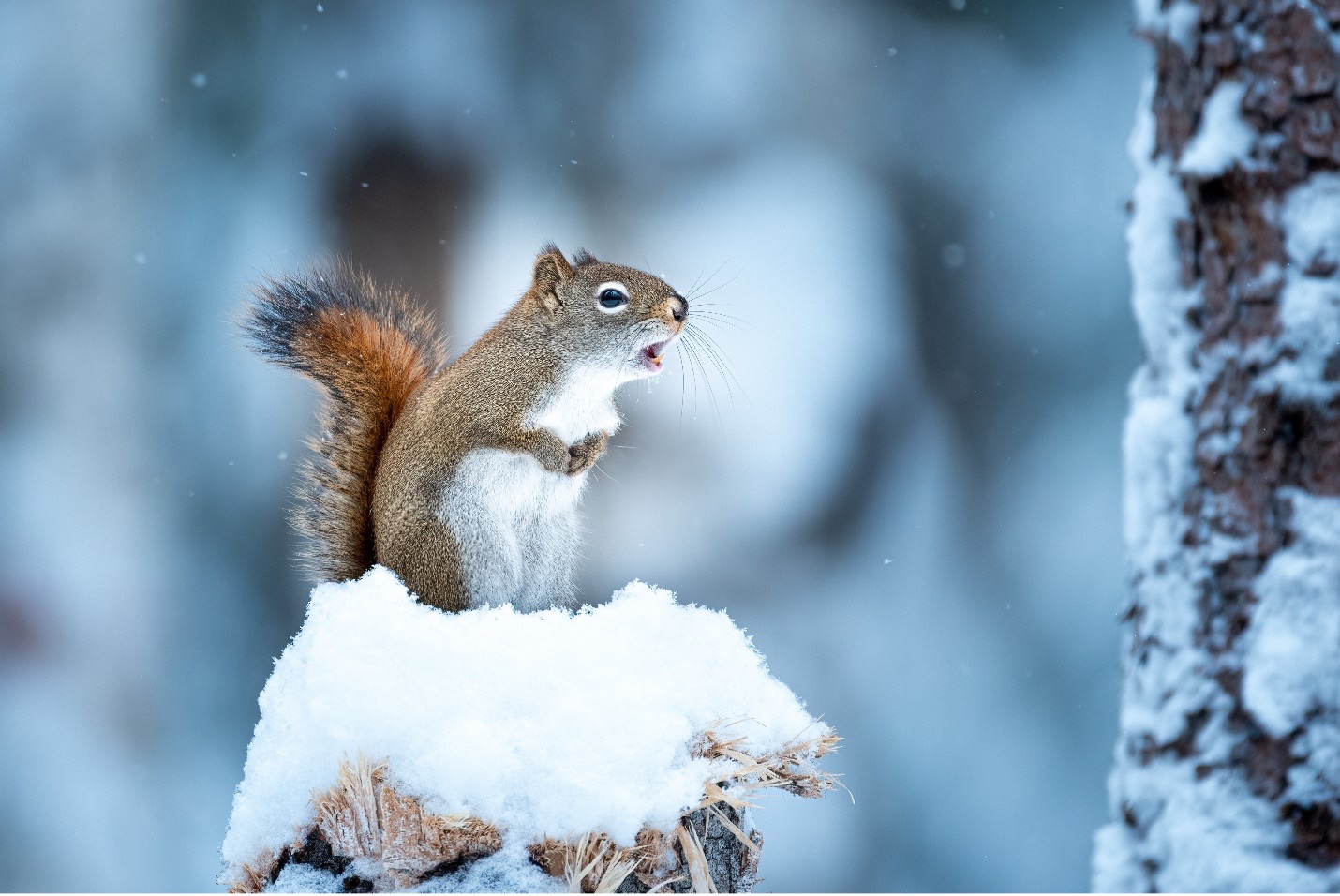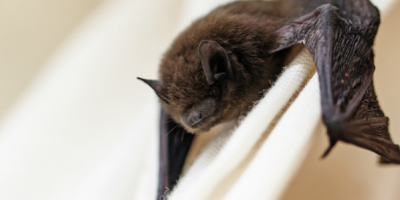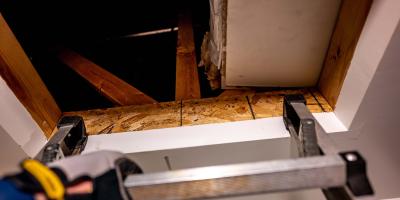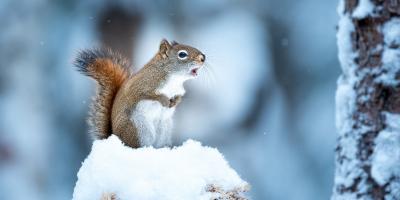How Squirrels Survive the Snow-Covered Months

Winter is in full swing and with it comes all the challenges associated with colder temperatures, including snow, freezing rain, and ice-covered everything. It’s no secret that New England winters can be brutal, which explains why so many animals hibernate or migrate. But what about squirrels?
In the late autumn months when we’re hustling about trying to prepare for the holiday season, squirrels are also prepping for the colder months. They do this primarily by increasing their caloric intake and storing food like berries, acorns and nuts in the ground and in close proximity to the trees where they nest.
These nests provide adequate shelter against the colder temperatures and, on days where the weather turns downright frigid, the squirrels stay tucked inside for warmth, and only come out once the temperature warms enough to pull food from their buried hoards. Interestingly, if a female squirrel gave birth to a litter late summer, she might hold off weaning her pups until after the challenging winter season.
This all sounds great and even cute… until you hear some strange noises coming from the attic and discover that a family of squirrels has discovered even better winter accommodations: your attic.
Attics are Enviable Shelters for Squirrels
It’s easy to see what makes an attic so attractive for squirrels when winter sets in and the weather outside is frightful. Typically, attics are empty of other guests, human or otherwise, which means no natural predators to worry about for the squirrels. In addition, these spaces provide warm protection from the elements; dry and quiet. So quiet, in fact, attics make ideal squirrel nurseries.
Sounds adorable, right?
For a homeowner, it definitely isn’t.
Squirrels can cause an alarming amount of structural damage to a house. Whether from climbing, nesting, chewing, defecating or urinating, squirrels will make their mark on your home. In fact, it’s a good idea to have an electrician check the wiring in your home if you’ve discovered squirrels in your attic; their habit of chewing on electrical wires can compromise the integrity of the wiring, potentially causing a fire.
In addition, any squirrel saliva, urine or fecal matter could contain pathogens resulting in illness and disease like rat bite fever, tularemia, hantavirus, lymphocytic choriomeningitis virus, leptospirosis, salmonellosis, yersiniosis, E. coli infections, campylobacterosis, giardiasis, and Lyme disease.
What’s that Sound?
Identifying squirrels in the attic can be as simple as recognizing some tell-tale sounds like scratching, scampering and even the sound of small items rolling along the floorboards. Given that most households are quieter at night once everyone has retired for the evening, you might notice these noises after the sun goes down but it’s possible to hear them early in the morning and even throughout the day.
A fun fact about squirrels in your attic is that they will build their nest on one side and designate the other as the outhouse, so to speak. If you get up to visit the restroom in the middle of the night, you might hear a squirrel doing much the same above your head.
Sending the Squirrels Packing
Once you know you have squirrels in your attic, it’s best to solicit the help of a wildlife professional to get them up. Rather than chase them out and hope they don’t come back (they will), a wildlife professional will exclude them from your home. This means finding how they’re gaining entry in the first place and sealing up those spaces so that they don’t return, after of course ensuring that all squirrely guests have exited the premises.
Another key component of professional wildlife exclusion involves protecting squirrel families. Remember that nursery we mentioned? Well, if it’s full of babies they naturally need to stay with their mother and she with them. If an untrained person somehow accidentally separated them, they would be setting their home up for additional damage as the mother frantically tried to get back to her babies by chewing her way through anything separating them.
Think you have squirrels in your attic? Schedule a free inspection now.



